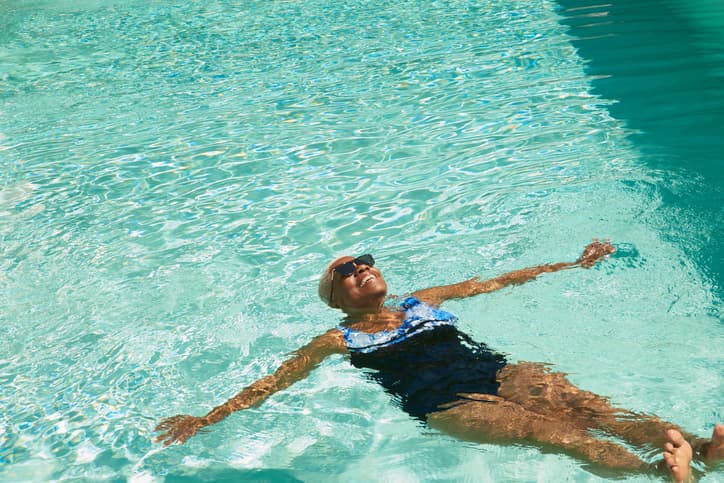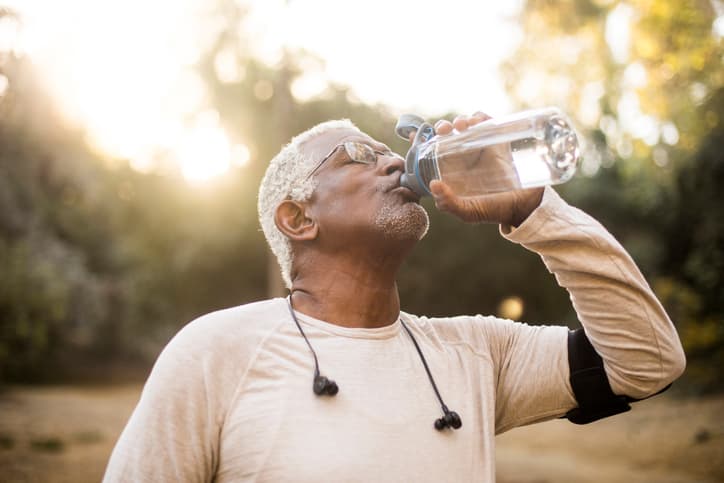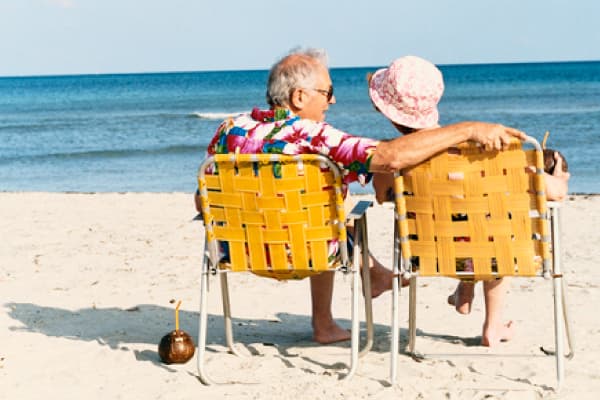Hydration Tips for Seniors

Written by Chad Birt on Tue Aug 05 2025.

Dehydration affects between 17-28% of older Americans. Unfortunately, it’s also a common cause of emergency room visits and hospitalizations.
While dehydration can occur any time of year, it’s especially common during the summer months, when the days are longer, the temperatures are hotter, and the humidity is higher.
“Getting enough water is very important for people over the age of 65, as it can help prevent dehydration and improve health,” said Sean Byers, co-founder of Best Choices for Seniors, and an internal medicine resident at The University of Texas Medical Branch at Galveston (UTMB). “However, for older adults, especially those with poor body composition, getting enough water isn’t always easy.”
In this article, we provide some tips, tricks, and recommendations for proper hydration. By the time you’re finished reading, you’ll know how to spot the symptoms of dehydration and take action before it results in a potentially serious problem.
What is dehydration and why are seniors so susceptible?
Dehydration occurs when your body loses water and you don’t take steps to replenish it.
Everyone experiences dehydration occasionally, but older adults have less total body fluid. When combined with factors, like taking a prescription medication and/or underlying health problems, like difficulty swallowing, the risk of dehydration significantly increases.
“When older people get dehydrated, they’re also more likely to be hospitalized and have an increased mortality risk,” said Lori Sears, RN, a Certified Dementia Care Specialist and the owner of Assisted Living Locators Arizona.
“Even mild dehydration affects your cognitive abilities, energy levels, and memory. Because it happens so quickly, you might not even realize there's a problem, before it requires professional intervention."
What are the symptoms of dehydration in older adults?
Dehydration affects everyone differently. Sometimes, symptoms develop suddenly; other times, they occur over an extended period.
Still, there are telltale signs to look out for, including:
Muscle cramps
Feeling thirsty
Heavy sweating
Peeing less than 4 times a day
Exhaustion
Dark yellow pee with strong odor
Low blood pressure
Nausea
Headache
Feeling dizzy or lightheaded
Feeling tired
Dry mouth, lips and eyes
If you notice your care recipient experiencing any of these issues:
A) Stop whatever it is you're doing and rest.
B) Move to an area with shade or air conditioning.
C) Drink water or another beverage that contains electrolytes.
If your care recipient's symptoms worsen or fail to improve, contact their doctor immediately, especially if they lose consciousness or seem agitated.
How can family caregivers help their care recipients stay hydrated?
As a family caregiver, it can be tough trying to keep your care recipient hydrated. After all, many older adults consider themselves independent and capable of making their own decisions. Even so, there are ways to encourage hydration throughout the day.
1. Make staying hydrated a game
Many older individuals, especially those with neurodegenerative conditions, forget to drink water throughout the day. Instead of constantly reminding your care recipient to stay hydrated, consider making it a game.
For example, you could ask your loved one to drink a glass of water whenever you do. An easy way to do that is to drink some water before each meal. Or, you could set a timer for certain times of the day. Try different things and see what works for you!
2. Try adding some flavor
Many people have strong opinions about water. If your care recipient would rather drink soda or milk, they might avoid water altogether if given the choice.
“Try providing other beverages that have water in them, such as flavored water or herbal tea,” said Sears. “These options may be more palatable and appealing."
If you don’t want to spend money on canned or bottled water, consider investing in a water infusion fruit pitcher. These appliances make it easy to create your own fruit-infused beverages from the comfort of home.
3. Set attainable goals
“Many older adults experience difficulty swallowing,” said Sears. “So, asking them to drink lots of water throughout the day can cause friction or physical discomfort. Try encouraging your loved one to drink smaller amounts of fluid several times a day. “
If your care recipient experiences incontinence, this practice can also reduce the risk of accidents and/or slip and falls that might occur while trying to reach the toilet.
4. Make it easy to monitor your loved one’s fluid intake
Caregiving is just one of your many responsibilities, so you probably don’t have time to keep track of everything that your loved one drinks.
To make things easier, “put water in a pitcher or container,” Sears said. "Some pitchers even have visible measurements on the side. If you've got one of those, you can monitor how much your care recipient drinks throughout the day and fill it up accordingly."
5. Eat a wide range of fruits and vegetables
It’s important to remember that water isn’t the only way to keep your care recipient hydrated. There are various fruits and vegetables that contain lots of water, not to mention dozens of vitamins, minerals, and nutrients.
Sears recommends produce such as watermelons, strawberries, cantaloupes, peaches, and cucumbers. That said, melons and stone fruit contain high amounts of sugar, so if your loved one has diabetes, it’s important to monitor their blood glucose levels.
6. Dress smart in the heat
Hot and humid weather increases the amount of water that your body loses through sweat. If you plan on spending some time outside, make sure to dress your loved one accordingly.
Specifically, Sears recommends wearing loose, lightweight clothing, including long pants and a long-sleeved shirt. If your care recipient is bald or fair-skinned, it's also a good idea to have them wear a wide-brimmed hat that blocks the sun's ultraviolet (UV) rays.
7. Stock your pantry
Tired of serving up tap water? It’s always good to have a variety of thirst-quenching beverages on hand. At Carewell, we stock various electrolyte replenishment drinks from Sqwincher. They contain absolutely no sugar, come in an assortment of flavors, and have 100% of the Vitamin C daily recommended value for adults.
Keep cool and enjoy the rest of summer
In closing, it’s crucial to remember that everyone has different fluid needs. As a result, Sears recommends consulting with your loved one's primary care physician before adjusting their fluid intake and/or diet.
We hope you’ve found these tips and suggestions for staying hydrated helpful. As always, if you have any questions about the products we carry, please contact our friendly Care Specialists by calling (800) 696-CARE or sending an email to support@carewell.com.
“Just because it's summer doesn’t mean your care recipient has to avoid going outdoors,” Sears said. “With some planning, precaution, and proper hydration, they can continue participating in their favorite activities."
Other Articles You May Like

6 Simple Tips for Heat Stroke Prevention
The summer months increase the risk of heat-related illness. Follow these tips to prevent heat stroke and keep your senior healthy all season long!
Read More >
Carewell’s Ultimate Packing Checklist for Caregivers
If you’re a family caregiver, preparing for an extended road trip, cross-country flight, or multi-week cruise can seem like a Herculean feat. We aren’t here to tell you that traveling with a care recipient will be easy, but with a little bit of planning and a good attitude, it can be done. By the time you’re finished reading this article, you’ll know exactly what to bring on your upcoming trip, ensuring you and your loved one make memories to last a lifetime.
Read More >
Chad Birt is a freelance medical writer who resides in Astoria, Oregon. When he isn't behind a keyboard, you can find him hiking, camping, or birdwatching with his wife Ella and their two dogs, Diane and Thoreau.